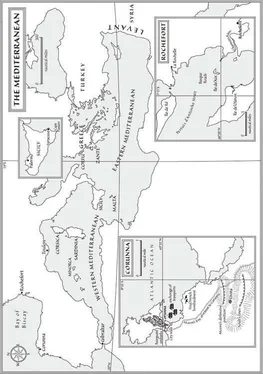Julian Stockwin - The Iberian Flame - Thomas Kydd 20
Здесь есть возможность читать онлайн «Julian Stockwin - The Iberian Flame - Thomas Kydd 20» весь текст электронной книги совершенно бесплатно (целиком полную версию без сокращений). В некоторых случаях можно слушать аудио, скачать через торрент в формате fb2 и присутствует краткое содержание. Год выпуска: 2018, Издательство: Hodder & Stoughton, Жанр: Старинная литература, на английском языке. Описание произведения, (предисловие) а так же отзывы посетителей доступны на портале библиотеки ЛибКат.
- Название:The Iberian Flame: Thomas Kydd 20
- Автор:
- Издательство:Hodder & Stoughton
- Жанр:
- Год:2018
- ISBN:нет данных
- Рейтинг книги:3 / 5. Голосов: 1
-
Избранное:Добавить в избранное
- Отзывы:
-
Ваша оценка:
- 60
- 1
- 2
- 3
- 4
- 5
The Iberian Flame: Thomas Kydd 20: краткое содержание, описание и аннотация
Предлагаем к чтению аннотацию, описание, краткое содержание или предисловие (зависит от того, что написал сам автор книги «The Iberian Flame: Thomas Kydd 20»). Если вы не нашли необходимую информацию о книге — напишите в комментариях, мы постараемся отыскать её.
The Iberian Flame: Thomas Kydd 20 — читать онлайн бесплатно полную книгу (весь текст) целиком
Ниже представлен текст книги, разбитый по страницам. Система сохранения места последней прочитанной страницы, позволяет с удобством читать онлайн бесплатно книгу «The Iberian Flame: Thomas Kydd 20», без необходимости каждый раз заново искать на чём Вы остановились. Поставьте закладку, и сможете в любой момент перейти на страницу, на которой закончили чтение.
Интервал:
Закладка:
Renzi’s mood of wonder and admiration fell away as they arrived, and he contemplated the scale of his undertaking. In itself it was not perilous – he’d been briefed on how he should behave at the shrine and this was all that the Spanish expected of him. If nothing happened he would return to England. It was what would follow, if an approach was made as he desired, that held the dangers; there was much to be gained but only if much was risked.
They jostled along the antiquated thoroughfare, the stench making him grateful for the pomander that Mendoza had thoughtfully provided, the sound of their horses near drowned in the cacophony of the street. Quarters had been prepared at a secluded monastery, and Renzi thankfully bathed and allowed himself to be garbed in a penitent’s robe, the better to contemplate the morrow’s events.
In his grey vestment, barefoot and carrying a missal, Renzi set out very early in company with Fray Mendoza. The cathedral was truly impressive and he made much of his approbation and awe, performing his devotions slowly and reverently – the object being to touch through discreet iron bars the very stone upon which the Queen of Heaven had once trod. A blue-lettered mosaic tile set by its side was translated in a whisper by Mendoza, Renzi’s offering accepted and taken away.
Some hours of endless tedium at a service followed – and then he was suffered to go.
Mendoza politely offered to show him other churchly inspirations of Toledo but Renzi pleaded a headache and took to his room, readying himself for the approach – if it came.
In the morning, lying on the plain bed in his cell, the scent of the monastery’s orange grove stealing in with the wafting warmth of the early breeze, he considered his position. As far as he could detect, King Fernando had assumed the throne without overmuch disturbance, and certainly there was nothing so far that might allow for intervention or suborning. As for the French, it was said they were well into Spain on their way to the Portuguese frontier, but he hadn’t seen any. Unless there was some form of overture, his report would be thin.
Fray Mendoza arrived a little before midday, his features compassionate.
‘Excelentísimo, how do you fare this morning, pray?’
‘A marked improvement, the Lord be praised,’ Renzi said politely. ‘As I was yesterday overcome by the splendour and magnificence I saw, an experience I will never forget.’
‘Which is not an uncommon thing in many who make pilgrimage to the glory of Spain.’
Renzi acknowledged it with a small bow, and Mendoza went on, ‘And it allows me to inform you that your noble presence here in Toledo is noted by the royal court, who desire to extend to you in small measure the hospitality due to your station.’
‘That is most kind in you, sir.’
‘In the most informal way, of course, as our countries are unhappily not at present in a state of amity.’
‘I understand.’
‘ Su majestad el rey is not in a position to give audience but the first minister would be delighted to take la comida – how you say? – the midday meal, with you privily.’
It was happening! And discreetly. Safely in private, the minister could be quizzed and, whether unforthcoming or of value, could be discarded, or otherwise, with no one the wiser.
Chapter 21

Madrid was but forty miles along the fine royal road, but before they arrived at their destination, the Escorial, they were met by a strong escort, which formed up on the discreetly illustrious carriage, and proceeded at a smart clip, scattering peasants and traders alike. Twice Renzi saw sullen groups pulling back with angry shouts and snarls, and once the cavalcade stopped for consultation before setting off for the palace in a different direction.
It didn’t take much to deduce that in the capital there was a much different, volatile mood. If the masses had been driven onto the streets in the face of royal repression, was he seeing the first stirrings of revolution?
The tranquil calm of the palace was at odds with its lavish ostentation. Where England’s palaces had their crystal and marble, they could never compete against the flow of gold and silver from the New World that encrusted the vast chambers.
Renzi was ushered into one of the smaller rooms with a dining table at the end. A thick-set, extravagantly decorated officer rose to meet him, a major-domo by his side. An older individual, with a spade beard and an intelligent bearing, stood apart.
‘M’ lord Farndon,’ said the major-domo, in thickly accented English. ‘This is the Conde de Montijo, ministro de estado under the King, and I am his aide, Don Manuel Espartero.’ The older man made no attempt to approach.
After the flurry of bowing subsided, Renzi was invited to sit and an exquisite array of dishes was brought.
Montijo’s cruel face adopted a polite smile as he enquired after Renzi’s health and the progress of his pilgrimage. Renzi answered that he’d been most touched by the beauty and grace of the cathedral.
The Spaniard seemed to shrug it off as unimportant, then leaned forward, his words deferentially translated by Espartero. ‘Your good king Jorge. How does he?’
‘His Majesty flourishes, I’m happy to tell you, sir.’
Eyes flashed between Montijo and the older man. ‘Even in these fevered times monarchs must retain their majesty, their respect. Does he by chance convey by you any expression of brotherly regard to our recently enthroned gracious sovereign, King Fernando?’
In an instant Renzi understood. They were opening an avenue for any informal approach with which the British authorities might have primed him. An utterly unexpected and priceless opportunity – but one for which he was unprepared.
‘Er, His Majesty desires only the early restoring of peace between our nations,’ he declared carefully, adding, ‘and the preserving of the person of King Fernando in these so troublous times.’
Again the flashed glances. He was conscious that tension had been released – disappointment, or the conclusion that he was no more than he appeared to be?
Montijo continued silkily, ‘Quite. Our country is at this time racked by a trouble-making rabble bent on bringing it down to a base ignobility by their actions. I do hope you have not been inconvenienced, sir.’
The meal concluded, Renzi was ushered to an apartment in the rear of the palace, a suite with an airy balcony.
Whatever impression he might have drawn, there was no mistaking the character of those in power. He’d seen too many courts and chancelleries to be fooled: those were the King’s men and derived their dominance and command from him, to rise and fall with the monarch.
If Fernando fell in with the French, so would Spain. How could there be a chance for any British exploitation of the situation?
Renzi brooded on the impossibility of it all.
It left only the other side, the instigators of the unrest. Did they have plans for an uprising? If so, what was England’s position in relation to them?
He gave a wry smile. Did it matter? What he’d seen of the disturbances was minor and scattered, no basis for a full-scale revolt. And in any case, how could he find out who the opposition was, how to contact them?
A tentative knock at the door intruded into his thoughts.
He got up to see who it was, but it was only a maid, who bobbed shyly and asked in accented English, ‘Your service, El Marqués?’
She slipped in, closing the door quietly.
‘Er, there is nothing I require at this time, señorita. Please to—’
She did not listen, crossing rapidly to the balcony to check outside before returning to confront him, the dark eyes wide and troubled. ‘Sir, I must trust you,’ she said urgently, her voice low. ‘There is a great matter I ’ave to ask of you. There is no time to satisfy who am I. Will you hear me, sir?’
Читать дальшеИнтервал:
Закладка:
Похожие книги на «The Iberian Flame: Thomas Kydd 20»
Представляем Вашему вниманию похожие книги на «The Iberian Flame: Thomas Kydd 20» списком для выбора. Мы отобрали схожую по названию и смыслу литературу в надежде предоставить читателям больше вариантов отыскать новые, интересные, ещё непрочитанные произведения.
Обсуждение, отзывы о книге «The Iberian Flame: Thomas Kydd 20» и просто собственные мнения читателей. Оставьте ваши комментарии, напишите, что Вы думаете о произведении, его смысле или главных героях. Укажите что конкретно понравилось, а что нет, и почему Вы так считаете.










